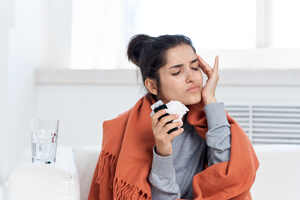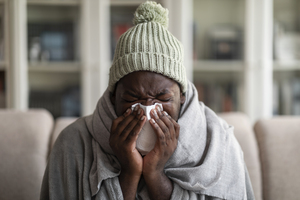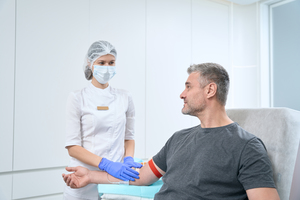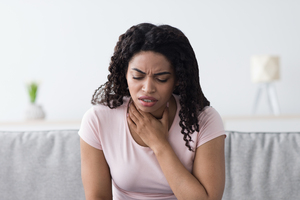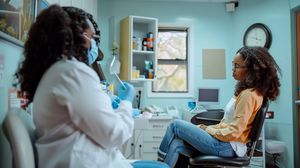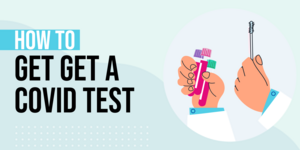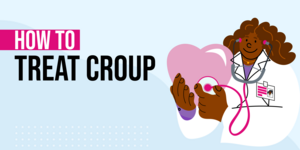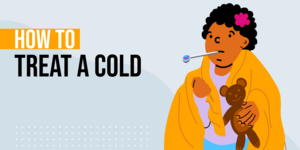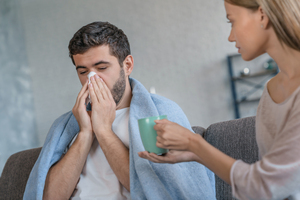Mono test
in Washington
Own a clinic? Add your location.
Help patients book appointments with you on Solv. It's free!
20 instant-book locations
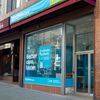
TODAY
View more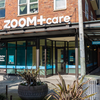
TODAY
View more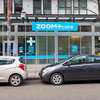
ZoomCare, Capitol Hill Broadway & Mercer
ZoomCare
TODAY
View more
ZoomCare, Queen Anne
ZoomCare


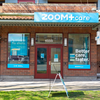
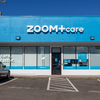
ZoomCare, West Seattle
ZoomCare
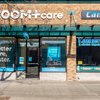
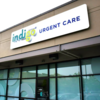
MultiCare Indigo Urgent Care, Rainier
MultiCare Indigo Urgent Care

MultiCare Indigo Urgent Care, Wallingford
MultiCare Indigo Urgent Care

ZoomCare, South Lake Union
ZoomCare
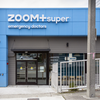
ZoomCare Super, Bellevue
ZoomCare Super


MultiCare Indigo Urgent Care, Bellevue
MultiCare Indigo Urgent Care

ZoomCare, Shoreline
ZoomCare

MultiCare Indigo Urgent Care, Kirkland
MultiCare Indigo Urgent Care
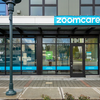
ZoomCare, Kirkland Totem Lake
ZoomCare

MultiCare Indigo Urgent Care, Tukwila
MultiCare Indigo Urgent Care

ZoomCare, Tukwila - Southcenter
ZoomCare
Own a clinic? Add your location.
Help patients book appointments with you on Solv. It's free!
[city] Mono Tests
Mononucleosis is an infectious viral disease that can be diagnosed with a mono test. Mono can be caused by a variety of viruses, the most prevalent of which is Epstein-Barr virus (EBV).
Mono can affect people of any age, but it is most frequent and evident in teenagers and young adults. One in every four teenagers and adults infected with EBV will develop mono.
If you have symptoms of mono, your doctor may perform or request a mono test. Fever, headache, sore throat, exhaustion, rash, and enlarged glands in the neck or armpits are all symptoms of mono, which are very similar to the flu.
The monospot test and the EBV antibody test are the two forms of mono tests. The monospot test looks for particular mono antibodies in the blood, whereas the EBV test looks for antibodies unique to EBV. Both tests require a blood sample, which can be done from your finger or a vein in your arm. To confirm or rule out a mono diagnosis, a mono test may be paired with other tests such as a complete blood count or throat culture.
A mono test takes less than five minutes to complete because it involves drawing blood from your finger or arm with a tiny needle. Your blood is drawn into a small tube or vial and examined in a matter of minutes to see if antibodies that suggest mono are present. A mono test does not require any preparation, although it may cause minor adverse effects such as minor soreness or bruising at the injection site, which normally goes away after a few minutes.
If your mono test comes back positive, your doctor will discuss your treatment choices with you. Mono usually clears up on its own within a few weeks, though some people may endure long-term lethargy. Getting enough rest, drinking plenty of water, and taking over-the-counter drugs to ease symptoms like headache and sore throat are all things you can do to get rid of mono. Based on your symptoms, your doctor may suggest other effective treatments.
Mono Test FAQs
How much does a mono test cost in Washington?
The cost of a mono test is determined by a variety of criteria, including test provider prices, geographic region, and whether or not your health insurance plan covers this test. To get out about applicable charges, contact the mono test provider directly, or contact your health insurance provider to learn more about your benefits and coverage.
Does insurance cover mono testing in Washington?
Many health insurance policies cover mono testing, especially if your doctor determines that it is medically essential based on your symptoms and current health state. To find out if mono testing is covered by your health insurance, contact your provider directly. Some mono test providers may verify your insurance benefits to see if this test is covered by your plan.
Who should get tested for mononucleosis in Washington?
Anyone who has symptoms of mono should be tested for the virus to confirm or rule out the diagnosis. Fever, sore throat, headache, exhaustion, rash, and enlarged glands in the neck and armpits are all symptoms of mono, which are similar to those of the flu. Mono can affect anyone, but it is more frequent in teenagers and young adults.
How do they test for mono in Washington?
A mono test is done by drawing blood from your fingertip or an arm vein. Both processes are very similar in nature. During the fingertip test, the testing provider will prick your finger with a little needle and draw blood into a small tube or vial. The testing provider will insert a small needle into your arm to draw blood into a small tube or vial to collect blood from a vein in your arm.
How long does a mono test take in Washington?
Whether blood is obtained from your fingertip or arm, a mono test is relatively quick, taking no more than five minutes. Mono tests usually don't require any preparation and don't result in any downtime. Even though a mono test just takes a few minutes, if you have to wait your turn, your session may last longer. Contact the mono testing provider ahead of time to check the duration of the test and your appointment.
How long does it take to get mono test results?
Mono test results are normally available in five to ten minutes, while some mono test kits may take up to an hour to complete. For further information on when your mono testing results will be returned, contact the mono testing provider. In most cases, you may expect to receive your test results the same day that you take it.
Where should I get a mono test in Washington?
A mono test can be done at a drugstore, urgent care clinic, walk-in lab, hospital, or doctor's office by a healthcare expert. If your doctor suspects you have mono, you may be tested right away or referred to a local physician who provides this service. You may also utilize Solv to locate mono testing providers in your area who give same-day visits and results.
How accurate are mono tests?
Mono tests have been demonstrated to be trustworthy, with an accuracy rate of 95 to 100 percent. Mono tests that only check for Epstein-Barr virus (EBV) antibodies, on the other hand, have been shown to cause fewer false negatives than tests that detect other types of antibodies. False-positive findings can arise in patients who have been infected with specific diseases, such as HIV, lymphoma, or rubella, because antibodies from these diseases can persist in the circulation for up to a year.
How can I book a mono test through Solv?
Solv aggregates lists of the highest-rated mono test providers, along with their contact information, making it one of the simplest methods to book a mono test. Enter "mono test" into the "What" form on our Home page, then choose your location from the "Where" dropdown menu to the right. Then, from the list offered, choose the mono test provider of your choice, and utilize the contact information to schedule a same-day appointment.
Can I do at-home mono testing?
There are no at-home mono test kits available to diagnose mono in yourself or a loved one in the comfort of your own home at this time. This test necessitates a blood draw, which must be administered by a medical expert who is both skilled and experienced. A mono test may be performed at your house by some healthcare providers, but there are no test kits accessible for self-testing at home.

Updated on Apr 25, 2025
Solv has strict sourcing guidelines and relies on peer-reviewed studies, academic research institutions, and medical associations. We avoid using tertiary references.
Related Searches
DOT Exam in Washington
Ear Wax Removal in Washington
Physical Exam in Washington
Sports Physicals in Washington
A1C Test in Washington
Allergy Testing in Washington
Basic Metabolic Panel in Washington
CMP Test in Washington
COVID-19 Antibody Test in Washington
Diabetes Test in Washington
Diagnostic Test in Washington
Flu Test in Washington
H Pylori Test in Washington
Hepatitis test in Washington
Mono Test in Washington
Pregnancy Test in Washington
RSV Test in Washington
STD Testing in Washington
Strep Test in Washington
TB Test in Washington
Thyroid Test in Washington
Vitamin D Test in Washington
Aetna Urgent Care
Blue Cross Blue Shield Urgent Care
Cigna Urgent Care
COVID-19
Flu
United Health Urgent Care
» All services in WashingtonEveryday Healthcare, Simplified
Expert advice to help you live your best life
